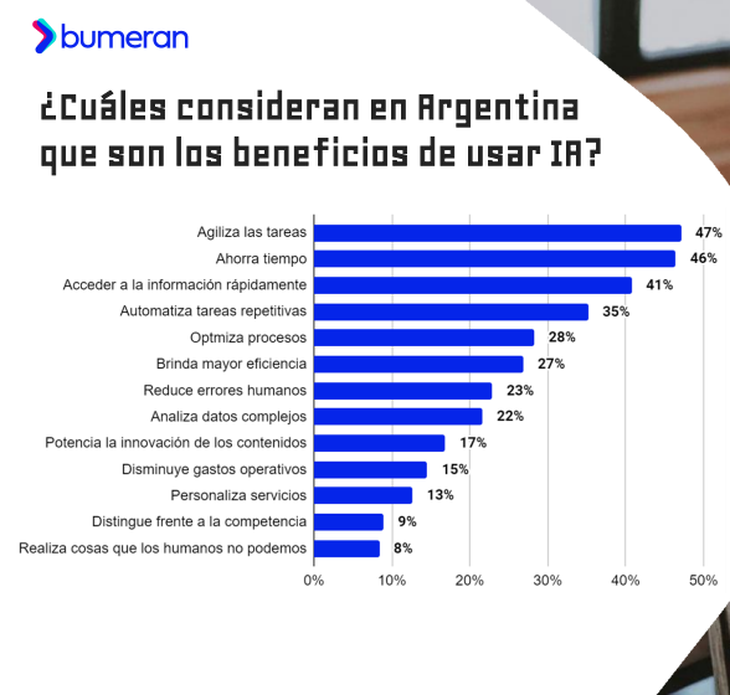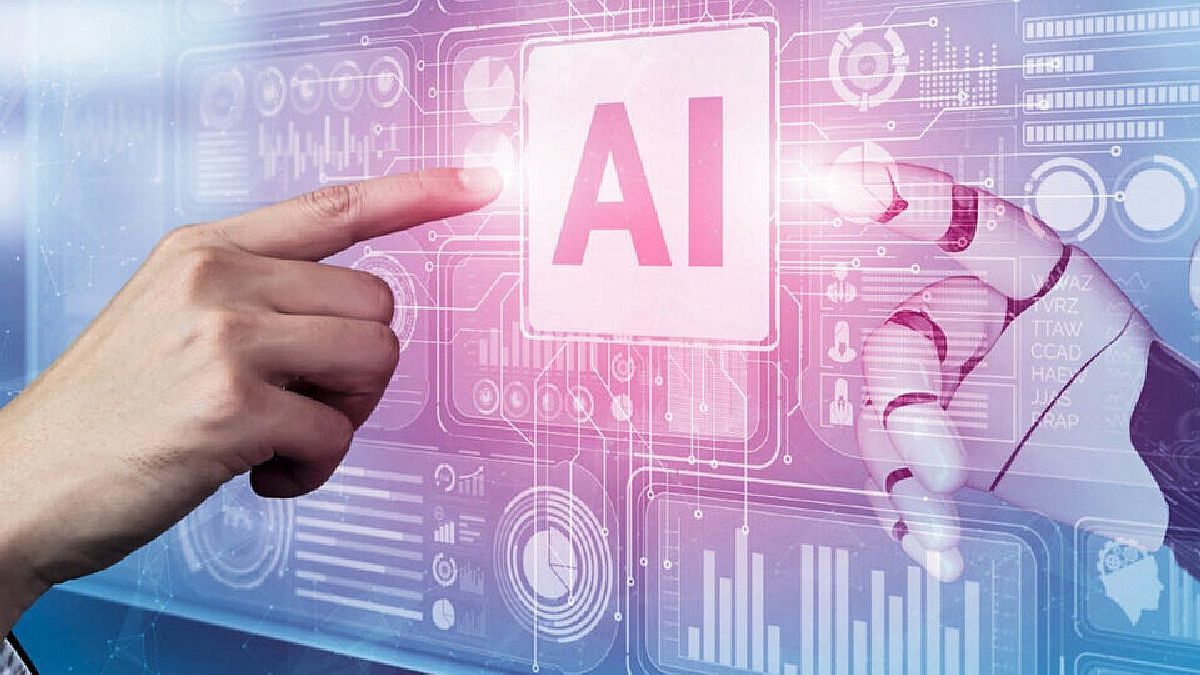Argentina It is the country in the region where it is least used Artificial Intelligence (AI) at work, according to a study prepared by Bumeran, a leading portal for employment in Latin America. Only 31% of the people surveyed said they used it.
In the rest of the countries the trend is greater: in Peru 49% used AI for daily tasks within their organizations; in Chile and Ecuador, 36%; and in Panama, 32%.
Cis women are the workers who mostly use AI, followed by cis men at 45% and another gender at 5%.
boomerang4.PNG
What are the main uses of AI in the workplace?
According to the report, the main uses are:
- 44% to make inquiries regarding daily concerns
- 38% to automate repetitive tasks
- 38% to create generative content
- 35% to solve everyday problems
- 25% to improve interaction with digital environments
- 24% to do advanced data analysis.
Although only 31% of working people in Argentina used AI at work, for the 97% find it useful or very useful to incorporate it into their daily tasks. The trend is repeated in the rest of the countries in the region.
Those who stated that they did not incorporate AI at work expressed that they did not do so because: in their organizations do not allow them (37%); they like to do their jobs without the incorporation of Artificial Intelligence (23%); they do not consider it necessary (18%); they cannot get used to it (16%); and they do not get along well with technology (12%).
Artificial intelligence: which are the sectors that use it the most
Regarding the sector in which they work, 16% of those who They do use Artificial Intelligence in their activities they belong to the area of Marketing and Communication; 14% to Commercial; and 13% to Technology and Systems.
On the contrary, among those who responded Do not use AI in your daily activities Labor, Production, Supply and Logistics is the area that tops the list (17%); is followed by Commercial (14%); and Administration and Finance (9%).
Artificial intelligence: what are the benefits of using it
When it comes to the benefits of using AI at work, the 47% consider that tasks are speeded up; 46% save time; 41% that allows access to information quickly; 35% that automate repetitive tasks; 28% optimize processes; 27% that provide greater efficiency; 23% that reduces human errors; 22% that makes it possible to analyze complex data; 17% that promote innovation in content; 15% that reduces operating expenses; 13% that facilitate personalizing services; 9% that distinguishes them from the competition; and 8% that do things that humans cannot do.
boomerang4.PNG

Artificial intelligence: what are the challenges and disadvantages
40% consider not depending 100% on AI as the main challenge; 33% that talents do not lose their jobs; 26% data security; 24% have the necessary resources for the implementation of AI; 25% maintain human judgment when performing tasks; 20% that teams understand and know how to use AI; 17% that talents do not become automatons; 15% limitations to human creativity; 14% the need for data to be accurate and not biased for AI to work well; 12% integration into existing systems and processes; 11% the loss of work productivity due to using AI; another 11% resistance to change on the part of talents and organizations; and 7% that talents cannot get used to it.
And what are the disadvantages to use Artificial intelligence in work tasks? The loss of jobs (43%); dependence on AI (35%); lack of empathy, understanding and human intuition (31%); errors due to lack of information (29%); the depersonalization of customer service (20%); difficulty in making ethical decisions (19%); limited interaction (15%); algorithmic biases that can lead to discriminatory and unfair decisions (14%); the costs of implementing and maintaining AI (14%).
When asked about the future of AI, 92% respond that they believe its use will be more common in work tasks. When asked if Artificial Intelligence is going to replace human work, 59% do not consider it that way.
Source: Ambito




